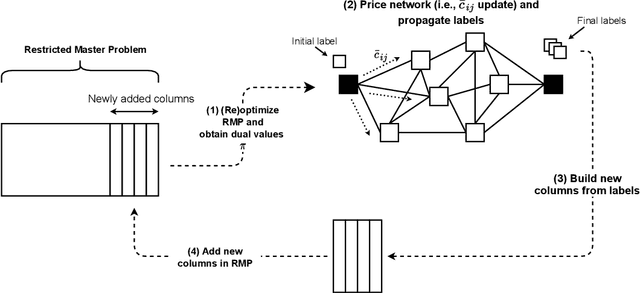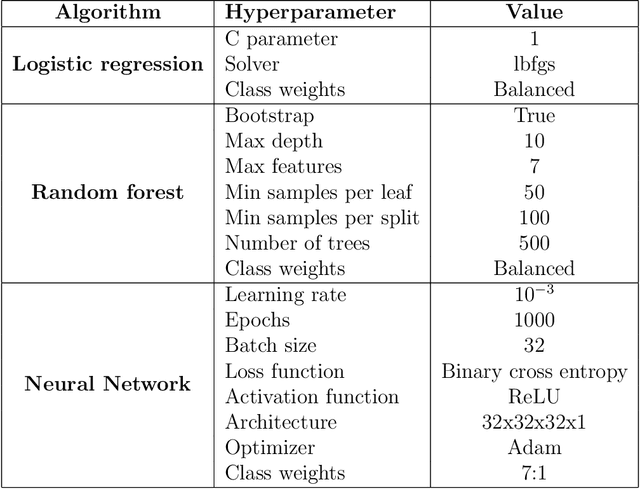Mouad Morabit
Learning to repeatedly solve routing problems
Dec 15, 2022Abstract:In the last years, there has been a great interest in machine-learning-based heuristics for solving NP-hard combinatorial optimization problems. The developed methods have shown potential on many optimization problems. In this paper, we present a learned heuristic for the reoptimization of a problem after a minor change in its data. We focus on the case of the capacited vehicle routing problem with static clients (i.e., same client locations) and changed demands. Given the edges of an original solution, the goal is to predict and fix the ones that have a high chance of remaining in an optimal solution after a change of client demands. This partial prediction of the solution reduces the complexity of the problem and speeds up its resolution, while yielding a good quality solution. The proposed approach resulted in solutions with an optimality gap ranging from 0\% to 1.7\% on different benchmark instances within a reasonable computing time.
Machine-learning-based arc selection for constrained shortest path problems in column generation
Jan 07, 2022



Abstract:Column generation is an iterative method used to solve a variety of optimization problems. It decomposes the problem into two parts: a master problem, and one or more pricing problems (PP). The total computing time taken by the method is divided between these two parts. In routing or scheduling applications, the problems are mostly defined on a network, and the PP is usually an NP-hard shortest path problem with resource constraints. In this work, we propose a new heuristic pricing algorithm based on machine learning. By taking advantage of the data collected during previous executions, the objective is to reduce the size of the network and accelerate the PP, keeping only the arcs that have a high chance to be part of the linear relaxation solution. The method has been applied to two specific problems: the vehicle and crew scheduling problem in public transit and the vehicle routing problem with time windows. Reductions in computational time of up to 40% can be obtained.
 Add to Chrome
Add to Chrome Add to Firefox
Add to Firefox Add to Edge
Add to Edge